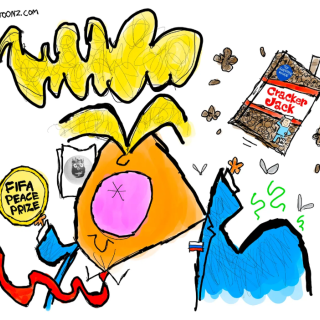Advertisement
Margaret's (Rebecca Hall) life is in order. She's capable, disciplined, and successful. Soon, Abbie (Grace Kaufman), her teenage daughter, who Margaret raised by herself, will be going off to a fine university, just as Margaret had hoped. Everything is under control. That's, until David (Tim Roth) returns, carrying with him the horrors of Margaret's past.
It's about a single mother acting alone to protect her child from some sort of dangerous threat or predator, but we don’t quite know who she is or why she must act alone. The character of Margaret is a complex woman, haunted by events in her past but also extremely in control of her life, or so she thinks. Margaret is a character preoccupied with control: control over her environment, her body, her emotions. Maintaining control is how she keeps her emotional wolves at bay and brings her a sense of pride. But of course, if you’re someone interested in maintaining strict control over yourself and your environment, the worst thing you can possibly do is have a child.
Margaret takes responsibility for so much, she holds herself responsible not only for keeping college age daughter Abbie safe, but she also blames herself for the return of David, a dangerous man from earlier in her life. This is one of the most tragic elements of her character. Margaret is convinced she has brought this on herself, when in reality she's obviously the victim – someone who at a young age was groomed, gaslit and preyed upon by a sadistic older man. Now David has returned and is trying to recreate the relationship they had in the past and exercise the same level of dominance and control. David believes his key to doing so comes in the form of their child, which he professes to carry with him.
David is a disturbing character, a man who tries to demonstrate power in a much more internal way. David is simply like some mustache-twirling villain. Someone who seems utterly harmless to anyone who's not Margaret. Because people who are amoral or sadistic rarely behave in ways that telegraph their malign intent, they try to disguise that, and often seem totally innocuous. He perceives himself as a kind of romantic hero, someone who's nobly trying to recreate a deep and special love that was tragically interrupted many years earlier. David thinks he’s doing the right thing.
Margaret’s daughter Abbie is a young person caught between worlds, with her mother inadvertently preventing her from moving on to the next stage of life, in a way not letting Abbie grow up. The character of Abbie hasn’t been allowed a lot of independence by her mother; she’s home a lot, plays a lot of video games, and yearns for autonomy, but hasn’t really been given the tools to know how to handle that. So she’s torn, because she’s eager to go away to college and finally be an adult, but she feels ill-equipped for all of that. When her mom, this helicopter parent who’s been ever-present her whole life, suddenly starts behaving erratically, it’s very scary for Abbie, and triggers a survival instinct in her.
The child immediately activates Margaret’s sense of loss and grief. It's what Margaret yearns for most and is the flashpoint for her guilt. Although impossible, the notion of a reunion with her child is irresistibly attractive to her, because it might finally allow her to forgive herself. Margaret deals with Abbie and with David, as well as her day-to-day life, and the crisis within her. The film tries to depict her experiences and her reactions in a way given her history. You can’t dismiss this character by just saying, “Oh, she’s going crazy.'” The script emphasized how fit this character is.
When trying to come up with a story, you'll often start by thinking about something that really terrifies you, some fundamental fear that we've, in the hope that it'll inspire an idea. In this case, you think about fears around parenthood, specifically the fear that your child or children are vulnerable and you will be unable to keep them safe and that you will fail in your fundamental duty as a parent and allow your child to be hurt or victimized. This line of thinking brought to mind the subgenre of parental vigilante films. These movies play on these fears but also provide a sort of grandiose wish-fulfillment fantasy about being able to protect your child in even the most extreme circumstance and becoming sort of an unstoppable superhero in the process, out of a sense of fierce love and dedication toward your kid. The film is interested in and terrified by the tactics employed by manipulative, controlling people to form and maintain intense emotional bonds with their victims. This really shapes the script.
"Resurrection" is a psychological thriller with surreal elements to the story. It’s a genre film, who plays fast and loose with the main character’s emotional life. The film plays with audience expectations, how some plot points are straightforward while others are more enigmatic. There are ambiguities in the movie, especially with regards to the ending, quite intentionally.
It’s very tricky to work in that space because you can obviously tip too far one way or the other, or it can be very unsatisfying if it doesn’t play effectively. The trick is to make it engaging and engrossing dramatically and create a coherent emotional payoff, so that any ambiguity or mystery feels earned and warrants the audience’s attention and consideration.
There’s no correct interpretation of the ending, it isn’t a riddle to be solved. The ending is, on its face, a happy one, but it's instability and impossibility suggests that the truth may be something far more tragic than what’s depicted on screen. Even though there’s some crazy stuff in the story, it's a simple and straight forward approach that still reflects the themes of the film. There are references to 70s paranoid thrillers such as “The Conversation” and “Klute," as well as Todd Haynes “Safe."
Resurrection opens Thursday, July 28 at the Gateway Film Center. https://gatewayfilmcenter.org/movies/resurrection-2022/




